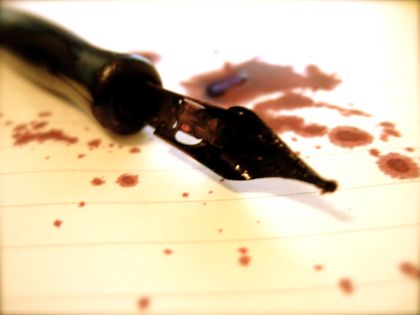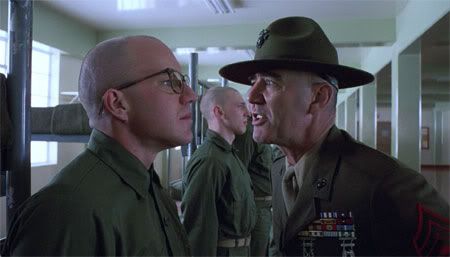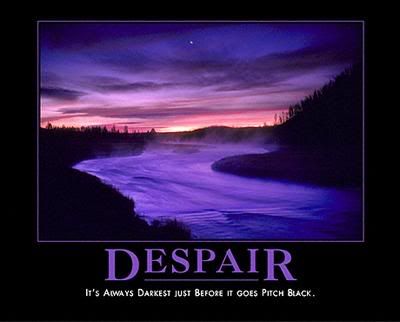A late night working plus working from home today equals headaches and other complications, the least of which is the fact that I didn’t prep a blog post yesterday. So while I brew coffee and hunt down painkillers, enjoy reading this post about what writers are.

Courtesy Floating Robes
You can’t say I haven’t warned you.
Living with writers is a tricky business at times. Look here, here and here for some of the proof. Over and above any cautionary tale you might here from the trenches is a deeper truth that is ever-present but rarely discussed. Writers, especially creators of fiction, for all their imagination and altruism and creativity and willingness to share their inspiration to inform and entertain, share a common bond that has nothing to do with what they drink and everything to do with how they do what they do.
I know I may be exaggerating somewhat, but bear with me through the metaphors. Writers, you see, are criminals.
Writers are Thieves
A writer may talk about someone or something that inspires them. What they’re really doing is confessing to theft. Now it’s rarely wholesale thievery, and you may need to look very carefully to see the seams between ideas stolen from other sources, but trust me, the wholly original idea presented by a writer is exceedingly rare.
Many writers have talked about this, at times obliquely, but Joseph Campbell is probably the best-known whistle-blower for this sort of thing. The idea of the hero’s journey is nothing new in the slightest, with the task of the writer being to modify that narrative through-line to make it interesting and relevant. Often the words being used have their roots in outside sources. However, the important part is not the words themselves, but rather what they are talking about.
Writers are Voyeurs
When you pick up a work of fiction, be it rattled off by a fan of a particular current narrative or a story spanning multiple volumes and years, you are looking into the lives of other people. You are seeing as much or as little as the author wants you to see. At times, you’ll be witnessing moments and aspects the people in question may not wish you to witness. You’ll be watching them at their most vulnerable, their most monstrous or their most intimate.
What is this if not voyeurism?
We often find or are told that the act of watching another person, especially if they are unaware of our presence, is something abhorrent. It’s invasive and we should be ashamed of ourselves. Yet we do it all the time. And it is writers, of stage and screen and page, who encourage us to engage in this sort of sordid, vicarious living.
It’s not all steamy windows and heavy breathing, though. When we see the lives of others unfold, the possibility exists for us, despite only being involved as observers, gaining something from the experience. The exploration of these fictional people can give us insight into our own perspectives and motivation. If we can relate to, understand and care for original characters, there’s no reason we can’t relate to, understand and care for our fellow man.
Writers are Murderers
George RR Martin, I’m looking at you.
What are writers if not gods of their own little worlds? They create the people that populate their stories, give them backgrounds, motivations and personalities, sometimes to the point of being all but living and breathing in the minds of the audience. Then, for the sake of the plot or to drive home a point, the writer kills them. Don’t be fooled by something like old age or heart failure or an “accident” – the character is only dead because the writer murdered them.
You can smooth over the stealing in a few ways, and the voyeurism is victimless, if a bit creepy. But murder? Man, that’s serious business. The writer is destroying something they themselves have created for the sake of telling a story.
Or rather, if they’re any good, for the sake of telling a good story.
The only two true inevitabilities in this life are that you are going to die and you are going to pay taxes. And writing about taxes isn’t very sexy or exciting. It goes back to the vicarious nature of experiencing fiction: by seeing how others deal with death, we can gain some measure of peace, understanding and even inspiration to apply to our own lives. The writer’s murders take on an edge beyond this due to the finality of death, but it can still be to the ultimate benefit of the audience.
There’s also the fact that it can be a hallmark of a writer doing their job well. If people are truly outraged by the death of a character, if they cry out in protest or flip tables or what have you, the writer’s done something very special. They’ve made the audience care about an imaginary person. The people experiencing the story feel something on a personal level, have become engaged if not immersed in this tale, which means the writing has done more than convey a story. It’s drawn people into it and inspired them to care.
You can’t make an omelet without making a few eggs, and you can’t tell a truly compelling story without characters dying.
Writers are dark. They’re dastardly. They’re absolutely despicable.
But do we really want them any other way?









